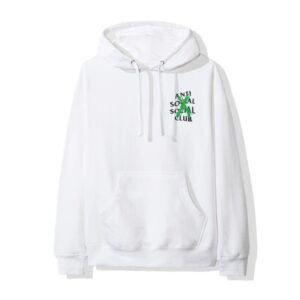Anti Social Social Club (ASSC) is a streetwear brand that has gained immense popularity in recent years. Known for its minimalist designs and bold branding, anti social social club has become a favorite among fashion enthusiasts and streetwear collectors. In this article, we will explore the origins of Anti Social Social Club, examining its founding, the vision of its creator, and the key milestones that have shaped the brand into what it is today.
Founding of Anti Social Social Club
Anti Social Social Club was founded in 2015 by Neek Lurk, a former graphic designer for the streetwear brand Stussy. Lurk, who had a passion for fashion and design, sought to create a brand that reflected his personal experiences and emotions. The name “Anti Social Social Club” was chosen as a reflection of Lurk’s introverted nature and his desire to challenge societal expectations.
The Vision of Neek Lurk
Neek Lurk’s vision for Anti Social Social Club was to create a brand that resonated with individuals who felt like outsiders or misfits in society. Lurk wanted to provide a platform for people to express their true selves and embrace their individuality. The brand’s name, “Anti Social Social Club,” was a deliberate contradiction, challenging the notion that one must always be social and outgoing. Lurk aimed to create a community of like-minded individuals who could find solace and empowerment through the brand.
Early Milestones and Popularity
In its early days, Anti Social Social Club gained attention through social media platforms such as Instagram. Lurk utilized these platforms to showcase his designs and connect with potential customers. The brand’s minimalist aesthetic and bold branding quickly caught the attention of streetwear enthusiasts, leading to a surge in popularity. Limited edition drops and collaborations with other brands further fueled the brand’s growth and created a sense of exclusivity.
Controversies and Criticisms
Despite its rapid rise to fame, Anti Social Social Club has faced its fair share of controversies and criticisms. One of the main criticisms revolves around the brand’s perceived lack of transparency and customer service issues. There have been instances of delayed shipping, poor communication, and limited availability of products, which have led to frustration among customers. Additionally, some critics argue that the brand’s success is primarily driven by hype and marketing tactics rather than the quality of its products.
Evolution and Expansion
Over the years, Anti Social Social Club has evolved and expanded its offerings. The brand has released a wide range of products, including hoodies, t-shirts, hats, and accessories, all featuring the iconic ASSC branding. Collaborations with other brands, such as Dover Street Market and Playboy, have further elevated the brand’s profile and expanded its reach. Despite the controversies, Anti Social Social Club continues to attract a dedicated following and remains a prominent player in the streetwear industry.
Cultural Impact and Legacy
Anti Social Social Club’s impact on streetwear culture cannot be understated. The brand’s minimalist designs and bold branding have influenced the aesthetic of many other streetwear brands, leading to a proliferation of similar styles in the market. The brand’s success has also demonstrated the power of social media in shaping trends and connecting with consumers. Anti Social Social Club’s legacy lies in its ability to create a community of individuals who resonate with its message of non-conformity and self-expression.
In conclusion, Anti Social Social Club has emerged as a prominent player in the streetwear industry, known for its minimalist designs, bold branding, and rebellious ethos. The brand’s origins, vision, and early milestones have shaped its identity and attracted a dedicated following. Despite controversies and criticisms, Anti Social Social Club continues to evolve and expand, leaving a lasting impact on streetwear culture.

